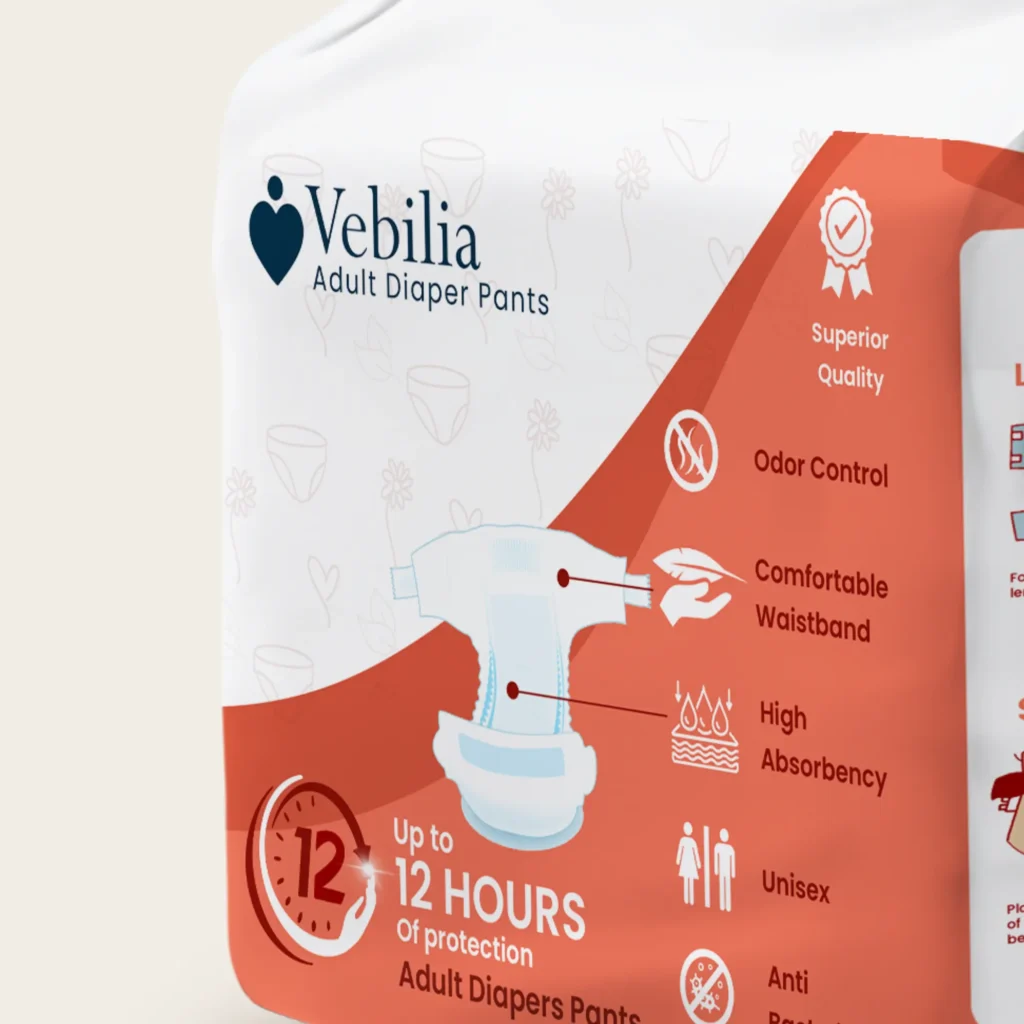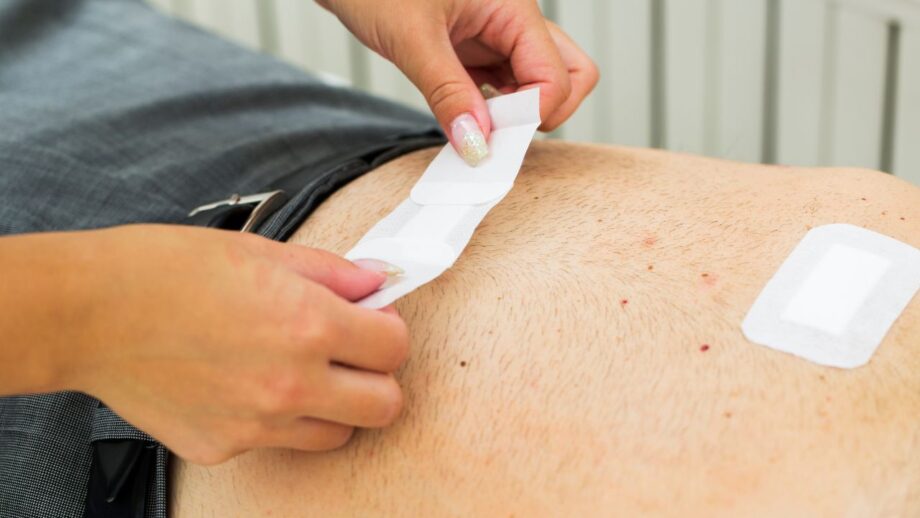Experiencing bladder leaks after surgery is a daunting challenge. Known as Post-Operative Urinary Incontinence (POUI), this condition can arise following various surgical procedures, particularly those involving the pelvic region. Be it due to nerve damage, weakened muscles, or changes in bladder function, it is a given for bladder leaks to significantly affect one’s quality of life. In this blog, we will understand the challenges and explore effective strategies for managing bladder leaks post-surgery, including practical tips, lifestyle modifications, emotional support strategies, and professional guidance.
Understanding Postoperative Urinary Incontinence (POUI)
Postoperative urinary incontinence is characterised by the involuntary leakage of urine after undergoing surgery. We hope that this condition is temporary but full disclosure– in a few cases it can be chronic too; it also varies in severity. For effective management of urinary incontinence, it it first important to understand the underlying causes and symptoms.
Common Causes of POUI
- Surgical Impact: Surgeries involving the bladder, prostate, or uterus can directly affect the structures responsible for urinary control. Trauma to the bladder or urethra can be caused during surgery. Even use of certain medications, such as diuretics or sedatives can lead to Post-Operative Urinary Incontinence.
- Nerve Damage: Surgical procedures may inadvertently damage nerves that control bladder function, leading to incontinence.
- Muscle Weakness: The pelvic floor muscles may become weakened or strained during surgery, resulting in reduced support for the bladder.
- Infections: Post-surgical urinary tract infections (UTIs) can exacerbate incontinence issues and lead to increased urgency and frequency of urination.
Symptoms of POUI
The symptoms of POUI can differ from individual to individual. As told earlier, some may experience only mild leakage, while others may lose all control over their bladder. Common symptoms include:
- Involuntary leakage of urine
- Increased urgency to urinate
- Difficulty holding urine until even reaching the bathroom
- Frequent urination
- Discomfort or pain during urination
Coping Strategies for Bladder Leaks Post-Surgery
Coping with bladder leaks post-surgery requires a multifaceted approach that combines medical advice, lifestyle changes, and emotional support. Here are some effective strategies:
1. Consult Your Healthcare Provider
The first step in managing bladder leaks post-surgery is to consult with your doctor, healthcare provider or surgical team. They can provide tailored advice based on your specific situation and recommend appropriate treatments. They might also tell you if it’s a temporary side-effect of the surgery and should heal on its own with time. Open communication (yes, without any shame) about your symptoms is essential for healthy healing. The more detailed you get, the better it is (TMI all the way!)
2. Pelvic Floor Exercises
Kegel Exercises: Strengthening your pelvic floor muscles is essential for regaining bladder control. Kegel exercises involve tightening and relaxing the muscles that support the bladder. Here’s how to perform them:
- Identify Your Muscles: Imagine stopping urination mid-flow; these are your pelvic floor muscles.
- Practice Tightening: Squeeze these muscles for 2 seconds, then relax for 2 seconds.
- Repeat: Aim for 10 repetitions, gradually increasing the hold time up to 10 seconds as you progress.
Perform these exercises daily to see improvements over time. Consider working with a physiotherapist who specialises in pelvic health for personalised guidance. Physiotherapy was found effective in treating stress incontinence in about 80 per cent of cases of a study held in the University of South Australia. It would usually include pelvic muscle exercises (commonly called Kegels), biofeedback or electrical stimulation of muscles.
3. Bladder Training Techniques
Bladder training involves scheduling bathroom visits to gradually increase the time between urinations. This technique helps your bladder hold more urine over time:
- Keep a Bladder Diary: Track your urination patterns and identify habits that may contribute to leaks.
- Set Timed Intervals: Start by urinating every hour and gradually extend the intervals as you gain control.
Bladder training can take time and patience but has proven effective for many individuals dealing with urinary incontinence.
4. Lifestyle Adjustments
Making certain lifestyle changes can make things much better to aid better bladder control:
- Maintain a Healthy Weight: Excess weight can put pressure on the bladder, exacerbating leaks. Focus on a balanced diet and regular exercise to achieve a healthy weight.
- Avoid Bladder Irritants: Limit caffeine, alcohol, and spicy foods that can irritate the bladder and worsen symptoms.
- Stay Hydrated: Drink adequate fluids (6-8 glasses daily) to keep the bladder healthy but avoid excessive intake that may lead to more frequent urges.
5. Use Vebilia Adult Diapers
While working on regaining control, consider using absorbent products like Vebilia Adult Diapers for added security during daily activities. We’re confident that Vebilia can provide peace of mind and allow you to engage in social situations without fear of leaks.
Don’t trust us? Order your trial pack now!

Mental Health ~ Bladder Leaks Post-Surgery
Coping with bladder leaks post-surgery is not just a physical challenge; it also takes an emotional toll. Here are some strategies to help maintain mental well-being:
1. Acknowledge Your Feelings
It’s normal and natural to feel frustrated or embarrassed about experiencing bladder leaks. Acknowledge these feelings rather than suppressing them. Talking about your experiences with close friends or family members can provide relief and understanding. Eventually, you will soon see it’s more common that anybody of us realise!
2. Seek Professional Counseling
If feelings of anxiety or depression persist due to your condition, consider seeking professional counselling or therapy. A mental health professional (psychologist) can help you develop coping strategies and work through any emotional challenges you may face.
Preventing Future Issues
Once you have regained control over your bladder function post-surgery, consider implementing preventive measures to avoid future episodes of leakage:
- Continue Pelvic Floor Exercises: Even after recovery, maintaining strong pelvic floor muscles is crucial.
- Monitor Weight Changes: Avoid significant weight fluctuations that may impact pelvic health.
- Stay Active: Regular physical activity promotes overall health and supports pelvic floor strength. Give your best at keeping an active lifestyle!
- Healthy Diet Choices: A diet rich in fibre prevents constipation, which can exacerbate incontinence issues. Read more about some ayurvedic mixtures and diet do’s and donts’ during urinary incontinence here.

Conclusion
Coping with bladder leaks post-surgery can be challenging but is manageable with the right strategies and support systems in place. By consulting healthcare professionals, practicing pelvic floor exercises, making lifestyle adjustments, using Vebilia adult diapers, and seeking emotional support, you can regain confidence and control over your life.
Remember that you are not alone on this journey; many people experience similar challenges after surgery. Taking proactive steps toward managing postoperative urinary incontinence will empower you to reclaim your life and enjoy everyday activities without fear or embarrassment.
For more information on managing bladder health post-surgery or exploring personalised treatment options, please reach out to healthcare professionals who specialise in urology or continence care. Your path to recovery starts with understanding your body and seeking the right support!

